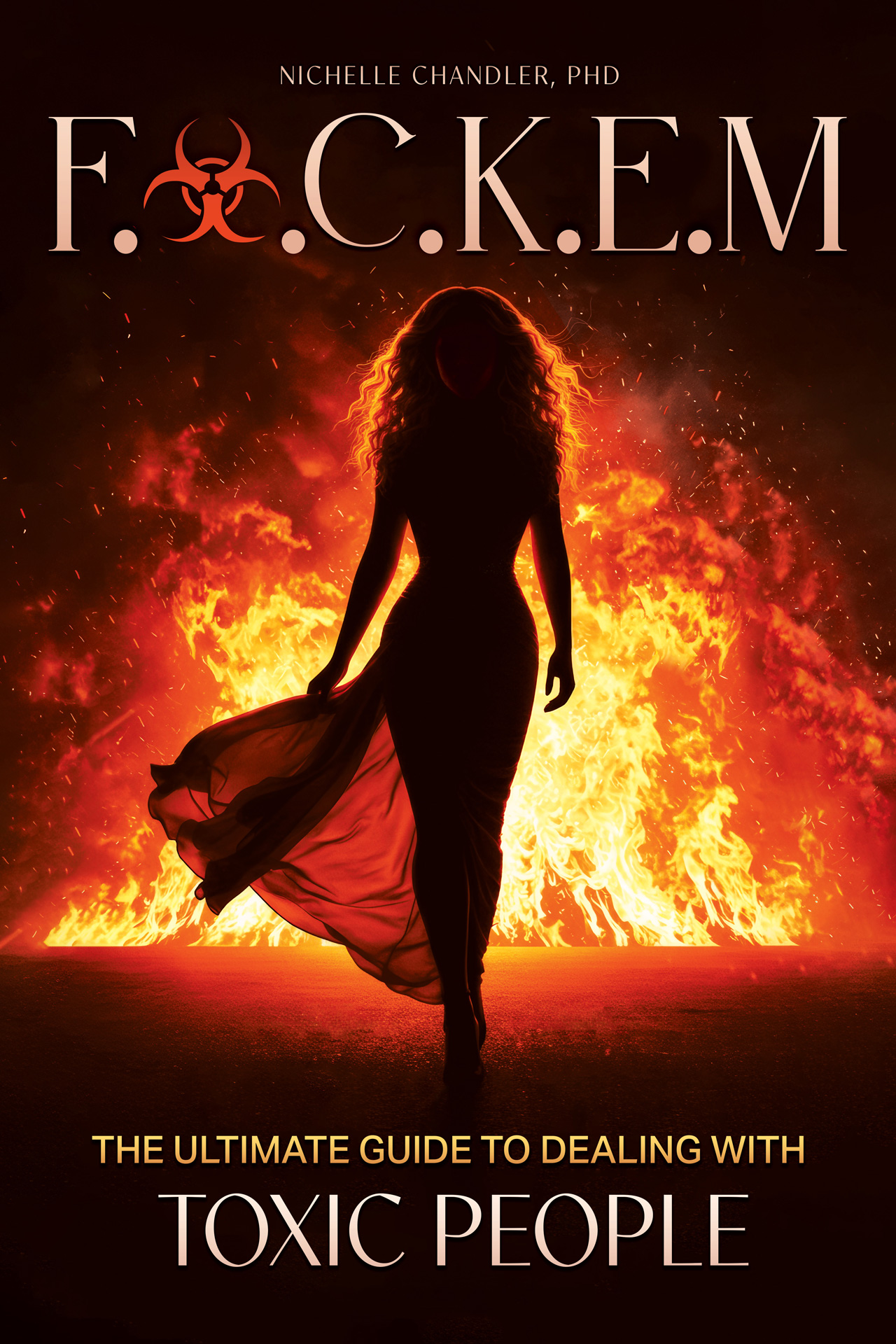
F.✱.C.K.E.M — The Ultimate Guide to Dealing with Toxic People
Six disciplined moves to protect your peace. Practical tools. Clear language. Results you can measure.
Positioning
“This isn't self-help. This is self-defense.” A clear, boundary-forward framework built from two decades of clinical practice and community work.
Downloadable Assets
Documents
Press Release (PDF)
One-page release, ready for editors. ~300 KB
One-Sheet (PDF)
Key facts, author bio, retail links. ~500 KB
Sample Excerpt (PDF)
First chapter excerpt for review. ~400 KB
Download All
Everything in one archive for editors on deadline.
Approved Photos

Quick Facts
Talking Points
- “This isn't self-help; it's self-defense.” Boundaries as protective care, not conflict.
- Outcomes over intentions: measure behavior, not promises.
- Six disciplined moves: name, interrupt, enforce, measure, choose distance, reinvest energy.
- Centering Black women's realities; universal mechanics across families, friendships, romance, and work.
- Practical scripts, safety notes for higher-risk situations, and re-entry planning for limited contact.
Short Excerpt
If a pattern keeps harming you, your first job isn't to explain it better—it's to enforce your boundary and reclaim your energy.
About Dr. Nichelle Chandler
Dr. Nichelle Chandler is a psychotherapist, wellness coach, and educator with two decades of practice. Her work helps people set enforceable boundaries, rebuild peace, and stop performing for approval that never comes. She centers the lived realities of Black women while offering tools that work across families, friendships, romance, and workplaces.
Keynote and workshop topics: boundary scripts, outcomes vs. intentions, toxic workplaces, co-parenting with clarity, protecting teens in group dynamics, rebuilding self-trust after gaslighting.
Suggested Interview Q&A
Q: What does “self-defense” mean in this context?
A: Protecting your peace with enforceable boundaries. Not aggression—clarity plus follow-through.
Q: How do you handle loved ones who say they'll change?
A: Measure outcomes, not intentions. If the behavior doesn't shift, your distance should.
Q: Why center Black women while calling the framework universal?
A: Because that's who has sat in the room the most—minimized pain, expected resilience—while the mechanics of toxicity remain the same across contexts.
Q: What should workplaces do differently?
A: Stop rewarding overextension and punishing rest. Define scope, track outcomes, and protect psychological safety.
Press & Speaking Inquiries
Links: Author Site · Amazon · Instagram · TikTok
Please credit photographer(s) and link to this page when using images.